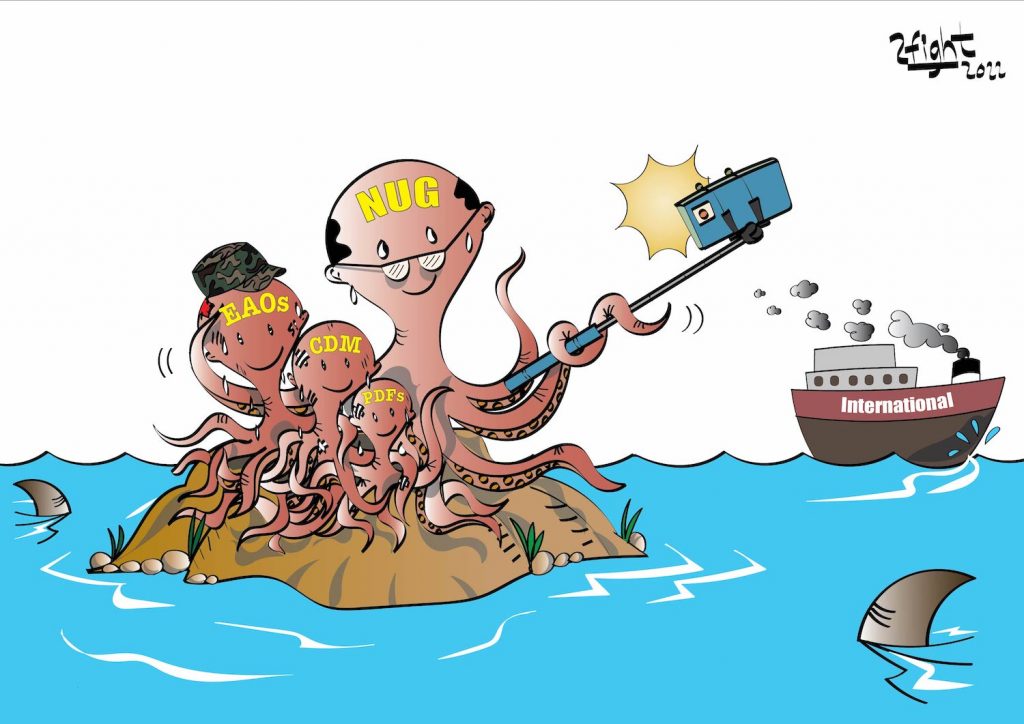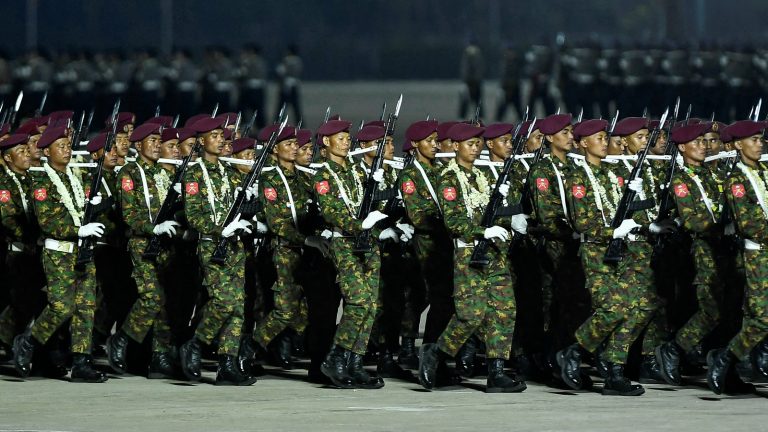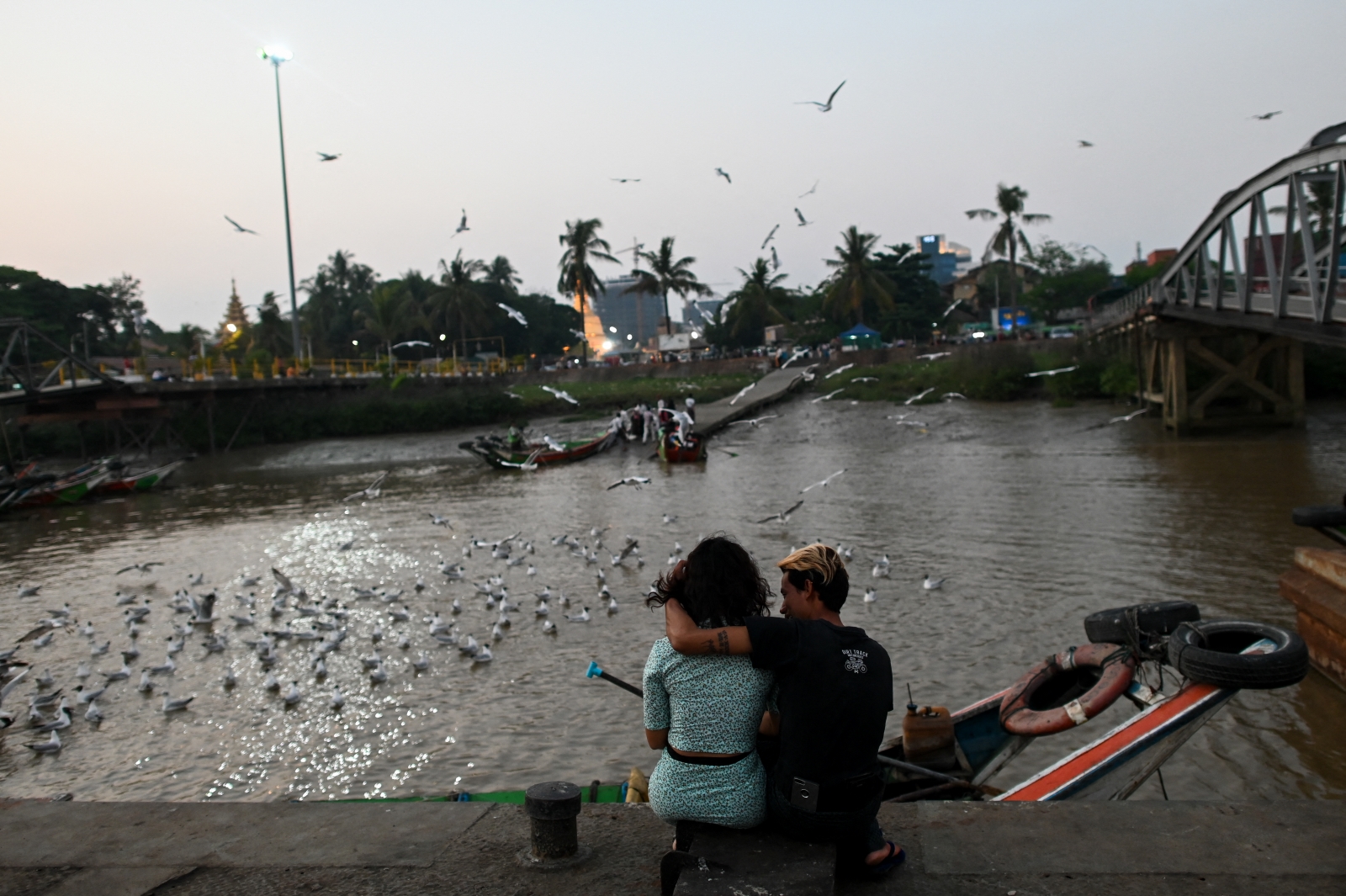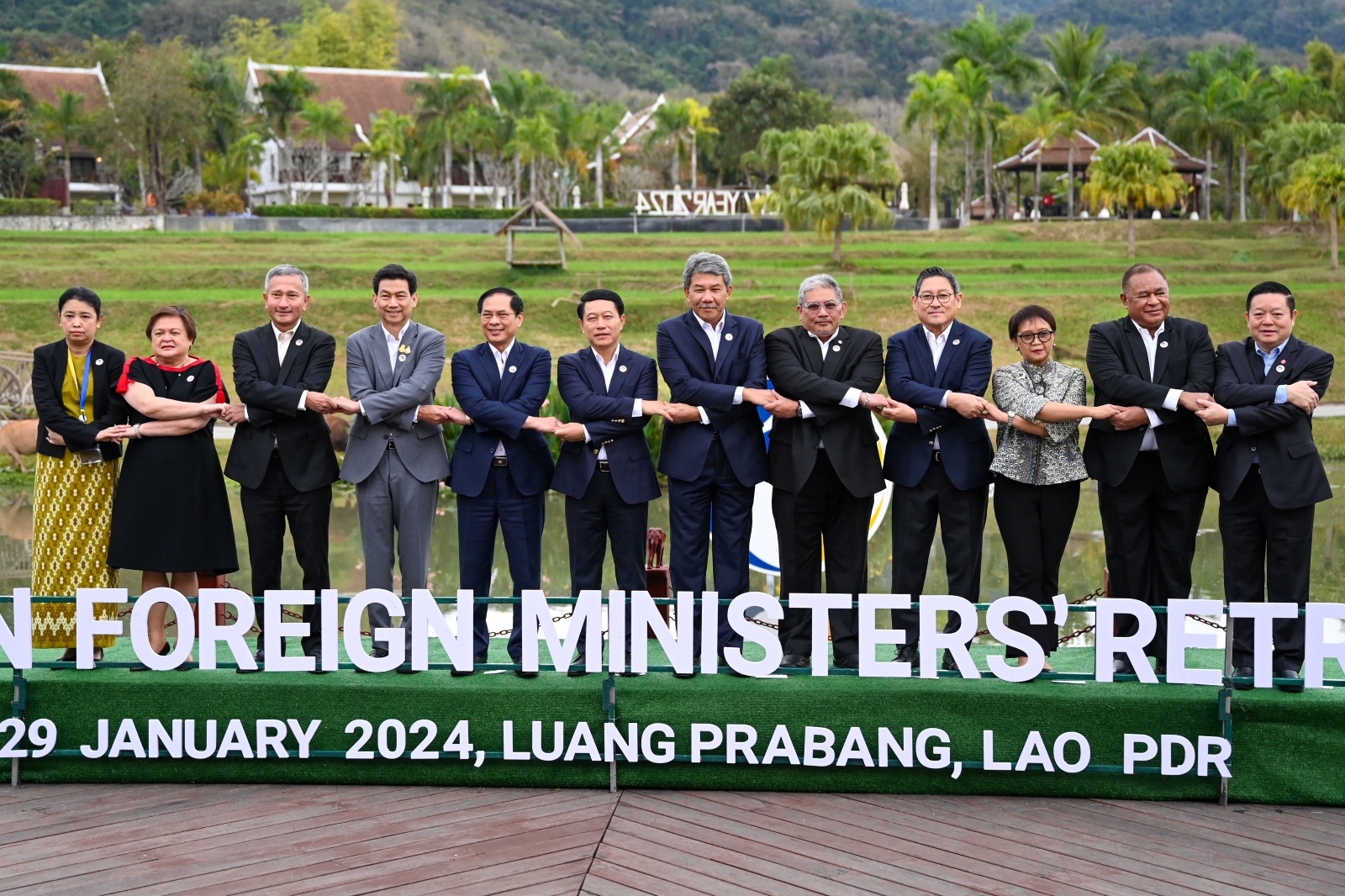If the National Unity Government wants to be taken seriously on the international stage, it needs to put forward a coherent, united, powerful vision for Myanmar’s future.
By FRONTIER
In the contest for control of Myanmar, the rhetorical theatre is just as important as the battles on the ground – particularly when it comes to gaining international support and recognition. While the National Unity Government has achieved much in the past year, it is still struggling to gain meaningful material support from even its most sympathetic allies.
Part of the problem is that the NUG has yet to convince the world that the revolution it is leading against the junta will succeed. More than a year after the coup – and following countless meetings that its counterparts are careful to specify are informal – the NUG is yet to gain formal recognition from foreign governments. More importantly, it has been largely unable to secure meaningful financial or military aid. Though the parallel government has overwhelming support inside of Myanmar and its propaganda efforts have been fairly successful at maintaining morale for over a year, the international community remains reluctant to throw full support behind the NUG even as many countries ramp up their condemnation of the junta.
For the NUG to receive the military and financial aid it is seeking, it needs to present to the outside world a simple and compelling narrative about itself and its vision for a post-authoritarian future. It needs to convincingly sell the idea that it is the government of Myanmar leading a united nation towards prosperity and peace that would inevitably come if it were given the funds and recognition it is asking for.
Instead, the world is presented with a dizzying array of messages coming from an equally dizzying range of groups: not only the CRPH, NUCC and CDM, but also the various EAOs and the hundreds of PDFs and UGs, not to mention the civil society organisations and activists, that show how contentious its authority within the nation is even amongst its allies.
Complexity is nothing new when it comes to Myanmar, but what has changed are the stakes: the country’s future – and the lives of many of its people – are on the line.
For years, the common refrain was that foreigners were inherently incapable of understanding the country due to their foreignness, and thus should not comment on or get involved in “internal issues”. So in a way, it makes sense that the international community would err on the side of caution rather than take bold action and make commitments that could draw them into a messy internal conflict. The NUG needs to convince them that their involvement will be worth the risk.
Adding to the hesitation is uncertainty around how much authority the NUG has over armed resistance forces and territory. Even as NUG ministers make grand statements about how nearly half the country is under resistance control, news outlets and human rights groups report that junta forces are burning villages for having connections to resistance forces. Meanwhile, violations of the NUG’s own code of conduct for warfare – such as assassinations of civilians – remain fairly commonplace, suggesting a lack of control or willingness to exert control.
On top of this, while fairness is a value that many in the international community espouse, it is not what any nation seriously bases its foreign policy on. The NUG’s recent comparisons of the situations in Myanmar and Ukraine, and what it perceives as unfairness and hypocrisy, makes it seem naive – to both how the world of international politics works and the geopolitical importance of Myanmar to the countries that it is petitioning for help.
None of this is likely to inspire confidence and a lack of confidence means no serious money or arms will be forthcoming. Unless and until the NUG can convincingly demonstrate that it can win the war, no one will supply it with the resources that would help it with said war.
The comparisons to Ukraine are also amateurish. Ukraine’s President Volodymyr Zelenskyy has responded to the invasion of his country with a clear, determined and inspirational stance. He leads a united country, and a single army, against a hostile neighbour with unequivocal support from his people, the region and the global community. Myanmar finds itself in an entirely different situation.
For a country like Myanmar, which is little known globally beyond the brutal oppression by its own military, the lack of clear, visionary leadership presenting a concrete path to victory leaves the international community facing a vacuum. The NUG needs to paint a much stronger picture of unity, force and power to convince foreign governments it is a credible avenue to channel resources beyond mere humanitarian assistance.







